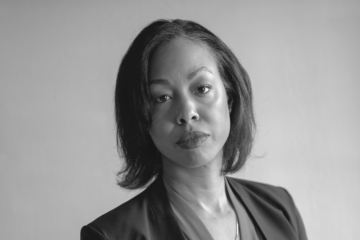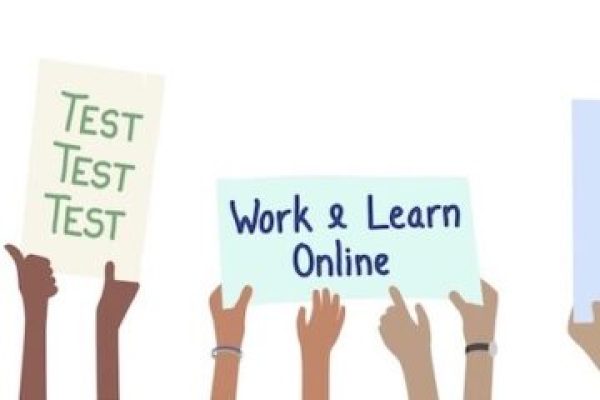Comments (0)
Overcoming the “Angry Black Woman” Trope

Recently, I was on the New York City subway. It was crowded and I ended up standing body to body with other folks. I stood close to the subway car entrance because there was nowhere else to go. Right as the doors were closing, a man, his young son and two other people jumped onto the train. The man knocked right into me, throwing me off balance (and I have good balance!). The force of the blow would have sent me to the ground had the bodies of others not cushioned me.
At first, I simply shook my head, took a deep breath and laughed it off. A woman sitting closest to where I was standing kindly gave her seat to the young boy. Immediately thereafter, the man proceeded to knock into me every time he crouched to talk to his son. I finally had enough. I spoke up and said to him, “”Pardon me” is also an acceptable option in this situation.” He turned and looked up at me and said, “How aggressive!”
“Why am I letting this man’s actions control my
feelings? Don’t I have the right to be angry?”
I acknowledge, my tone was firm. I retorted, “Look, if you want to move closer to your son, all you have to do is ask. Is that what you want to do?” No response. After a few moments, I really started fuming. “Aggressive?” I mumbled to myself. “You jump onto the train and knock into my body, don’t apologize, then continue to knock into me and I am being aggressive?” Then, I closed my eyes, returned to my deep breathing and tried to go to my happy place.
The word “aggressive” played over and over in my mind. At my first opportunity, I moved out of the entrance further into the subway car so I could center myself in a different physical environment. Once I did that, I started to get upset. I had an entire conversation in my head. “Why was I being labeled as ‘aggressive’ when I was just standing up for myself? I even called out the offending behavior with a ‘Pardon me’. Why didn’t the man apologize for his behavior?” Tears of frustration welled up in my eyes. As I fought them back, I started getting upset with myself. “Why am I letting this man’s actions control my feelings? Don’t I have the right to be angry?”
The “Angry Black Woman” Trope
The entire context playing out in the background of my conversation with myself was the “angry black woman” trope. This negative stereotyping has existed in mainstream culture since the days of slavery with black women depicted as “aggressive, ill-tempered, illogical, overbearing, hostile, and ignorant without provocation,” negatively impacting how we are seen and how we see ourselves.
In a beautifully penned 2018 opinion piece in HuffPost, Kimberly Seals Allers states, “Our anger has never been viewed as legitimate or warranted due to unfair treatment; instead, it’s been twisted into a pathology.” We have seen this in mainstream media time and time again in recent years; from Michelle Obama to Maxine Waters, and, more recently, Serena Williams and Meghan Markle.
While in corporate America, I spent more time than I can count thinking about how I can authentically express myself and be heard without coming across as “too angry”. What is the “right” amount of passion and commitment I can convey when I am advocating for myself and others while remaining likable? How do I come across as powerful and intelligent without being labeled as intimidating? Bottom line: exhausting.
How Did I Shift My Energy in the Moment?
Meanwhile, back on the train, I was able to shift my energy by coaching myself. That is, I started asking myself questions about what occurred and questioning my assumptions.
• “What assumptions am I making about this man that knocked into me?”
• “What stereotypes am I reinforcing by even being in this conversation with myself right now?”
• “What if this man’s calling me ‘aggressive’ has absolutely nothing to do with me?”
• “Do I think the man would have behaved in the same way had someone else who did not look like me have been standing there?” (YES!)
After running through this line of questioning, I was able to relax and connect with a feeling of peace. Two of my big lessons learned the last decade were 1) It’s all about me and 2) It’s not about me. Regarding the former, I understand that I process information based on my worldview, i.e., my thoughts, feelings, experiences and beliefs. With respect to my emotional wellbeing, I get to choose how I react to things. In the grand scheme of things, I am not going to allow people to hijack my feelings. In this situation, I can get angry, speak my piece and let it go.
I get to choose how much energy I want to put
into moving a situation forward in a positive way.
Looking at the latter, “it’s not about me”, stretched my psychological wellbeing. What can I learn from this situation? I move through the world first and foremost through my lens of “black womanness”. That guy on the train was likely most concerned about himself and the welfare of his son. I was likely just an obstacle blocking his desired outcome.
Is my intention to let him off the hook? No! Rather, I get to ask myself, “On a scale of 1 to 10, how important is this [situation or relationship] to me?” Social wellbeing factors into that thought process because it is important for me to reflect on this question, “What is the nature of my relationship to said human in this situation?” Based on my response, I get to choose how much energy I want to put into moving a situation forward in a positive way. In this instance, he gets a 1!
This one interaction on the train taught me so much. I know that I get to move beyond this negative stereotype. I acknowledge that it exists AND I can overcome it.
What Does It Mean “To Overcome?”
According to the Merriam-Webster dictionary, “overcome” means 1) to get the better of: surmount AND 2) overwhelm. (pause) Interesting. Depending on the context, overcome means moving forward in a positive way. And yet, it also means that one can be consumed by something to one’s detriment.
The duality that lives within “overcome” makes it so special in this context of angry black womanness. I am overcome with feelings of frustration and isolation when I believe that I am being typecast as the angry black woman…and yet, I have the ability to overcome my feelings and navigate successfully in a situation to get to my desired outcome, whatever that looks like.
I used the word “overcoming” in the title of this piece to acknowledge that moving forward is a process that I recommit to each day. It is a practice. I own my choices and am empowered to act. I choose when to engage and when to let it go. My mental wellbeing, emotional, psychological and social, depends on it!
Categories: Wellbeing Campaign | Tags: Emotional Wellbeing, mental wellbeing, psychological wellbeing, social wellbeing
Recent Posts
- PLC Newsletter: Ideas on How to Have Your Own “Shandar”
- PLC Newsletter: Be a Leadership R.E.I.G.nmaker: Year One Reflection
- PLC Newsletter: Be Kind: Moving Beyond Transactional Relationships
- PLC Newsletter: The Value of Knowing Your Organization’s and Your Personal Values
- #OpenToWork: Ideas to Enhance Job Search Success
Recent Comments
Archives
Categories
- Career Development (5)
- COVID-19 Support (1)
- News (1)
- Personal Growth (8)
- Personal learning (6)
- R.E.I.G.n (6)
- Wellbeing Campaign (19)
Recent Posts
- PLC Newsletter: Ideas on How to Have Your Own “Shandar”
- PLC Newsletter: Be a Leadership R.E.I.G.nmaker: Year One Reflection
- PLC Newsletter: Be Kind: Moving Beyond Transactional Relationships
- PLC Newsletter: The Value of Knowing Your Organization’s and Your Personal Values
- #OpenToWork: Ideas to Enhance Job Search Success




LEAVE A REPLY
Your email address will not be published. Required fields are marked *